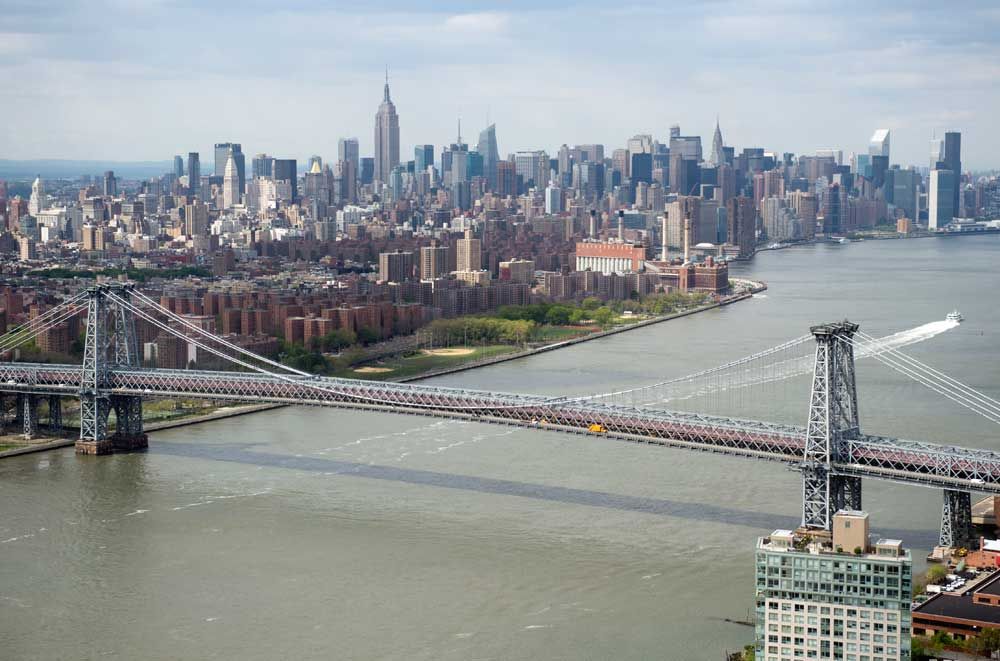Anthony Bourdain seen here in his series 'Parts Unknown'.
Once upon a time, as Gore Vidal observed, New York City was a delightful place to live – especially if you were an impoverished foodie. Legendarily delicious eateries abounded, everyone had a favourite dive bar and, if you got bored of local places, endless interesting, tasty yummies awaited discovery throughout the five boroughs. But the past is a foreign country: things are done differently there.
Here in the present, New York is the most expensive city in the world and much less delightful. Although, with an enormous amount of disposable income you can eat quite good food and with an obscene amount you can dine adventurously – even, I’ve heard, sublimely .
Anthony Bourdain, professional globe-trotting foodie, seems to be trying to address the Zurichification of Manhattan by converting one of the largest shipping piers on the Hudson River into a mega food market. “Think of an Asian night market,” he tried to help the New York Times’s reporter envision the incipient 47000m2 Bourdain Market. “Eating and drinking at midnight.” You know, fun? Remember that?
When economists discuss formerly great American cities such as New York and San Francisco, they use terms such as “super-gentrification”, “extreme gentrification” and “hyper-gentrification” but, to put it simply, how to kill a city as thrilling, complex and alive as the New York of Andy Warhol and Jean-Michel Basquiat, Duke Ellington and the Ramones, James Baldwin and Susan Sontag, is to unleash the hounds of unchecked greed and chase out all the poor folk.
When they leave, the city loses its savour: it loses its intoxicating smells, unique flavours, ability to interrupt your long night of the soul with life-affirming, belly-filling joy. Many bitter old New Yorkers like me mark the shuttering of fiercely adored eateries as the tolling of the city’s death bell. I’ve mourned the passing of the famous Chez Brigitte, The Holiday, Café Figaro, FOOD and Florent with tears in my eyes. But it’s the loss of some of the lesser-known spots that feels unbearable.

New York City. (AFP)
Extreme gentrification in the city
On the corner of Bethune and Hudson streets once stood the greasiest of greasy spoons, the Bus Stop Coffee Shop. A few of its regulars – uniformed bus drivers and other city workers – were always inside, on break, reading the newspaper and having a smoke and a plate of eggs. The windows were filthy, the air thick with grease, but MFK Fisher herself would have wept tears of gastronomical pleasure when the food arrived: the Bus Stop cooked simple, cheap, unpretentious food, with creativity and care.
They served the greatest grilled cheese I’ve ever had: fried in bacon grease for precisely the right amount of time to crisp the bread and imbue it with the smoky-tasting bacon that was an impeccable foil for the gooey Swiss cheese. On the plate, you got a single side: a dill pickle, the exact proportion of salty and sour to cut the grease of the sandwich and cleanse your palate for the toe-curling vanilla egg cream.
The anti-gentrificationists in London who recently donned pig masks and rioted outside a hipster restaurant selling bowls of cereal for $7 weren’t wrong: had I known the future I would have donned a mask and waved flaming torches outside the Magnolia Bakery in 1996. When sugary food originally meant for children becomes an overpriced fetish rich people line up to pay for, beware: your city is about to get its newly acquired blandness explained by terms such as extreme gentrification.
New Yorkers, accept change
If ever there was a New York restaurant closing that should have caused a class war – or at least an anti-gentrification riot – it was when Florent was forced to shut down by skyrocketing rents. Opened in 1985 by French artist and Aids activist Florent Morellet in the Meatpacking District, a then-obscure (and disgusting) corner of the West Village, his eponymous restaurant served really delicious, inexpensive French food, 24 hours a day; its clientele were hungry drag queens, but everyone was welcome.
In addition to serving boudin noir and moules-frites that made you think you were in the best bistro in Marseilles, Morellet’s restaurant was the rare place that nourished body and soul. Florent’s closing in 2008 felt apocalyptic. People wept and railed, “crazy with grief” they documented, opined and collectively shuddered at what their city had been and was no longer. But Morellet brushed himself off, and moved on. The message to bereft New Yorkers: accept change.
And when you can accept loss, according to Elisabeth Kübler-Ross, you will gain calm and stability – which you may need when you pay $18 for a grilled cheese . – © Guardian News & Media 2015